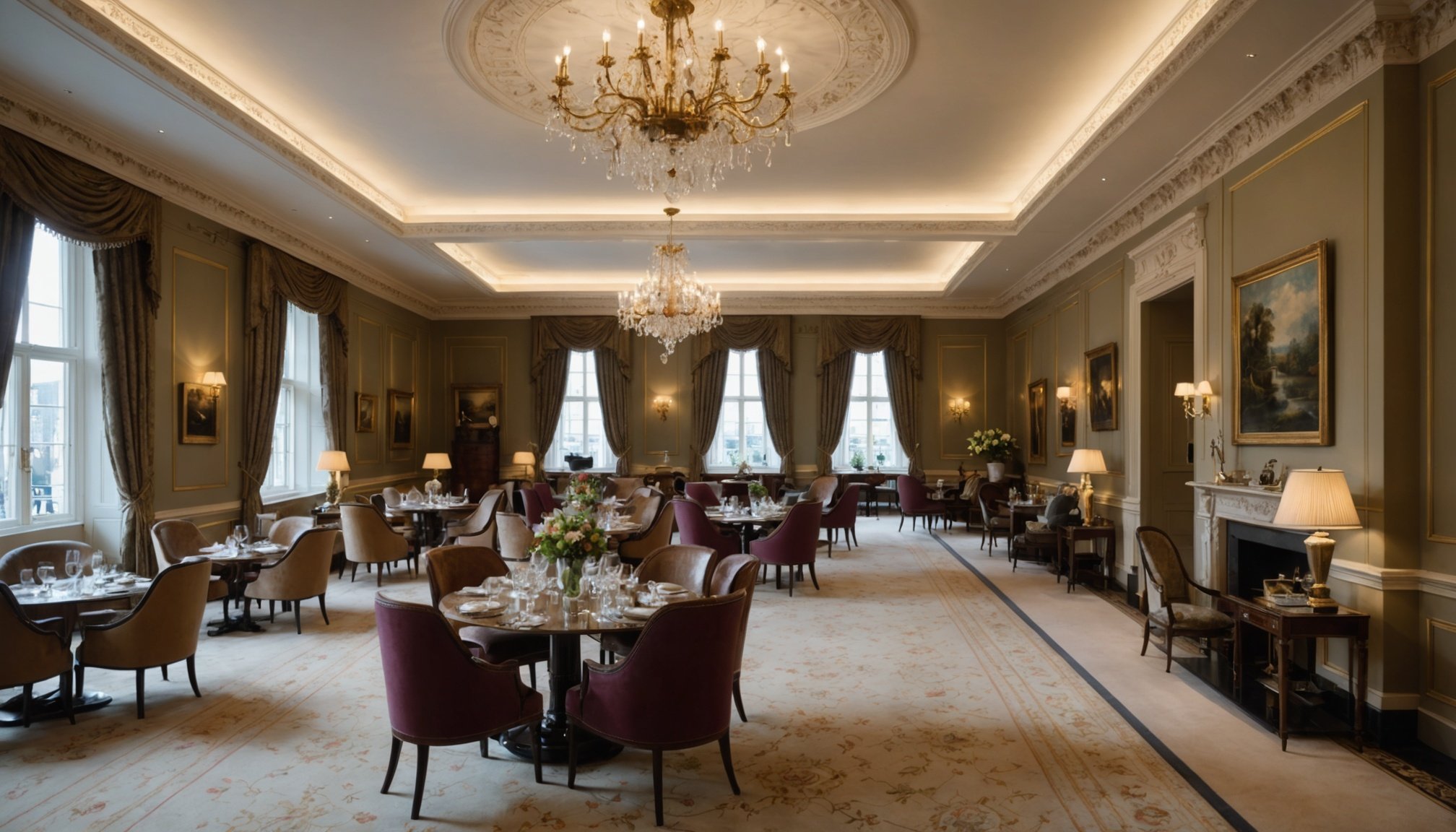Overview of Luxury Hospitality Sustainability in the UK
Luxury hospitality in the UK increasingly prioritizes sustainability practices to meet both regulatory demands and consumer preferences. Sustainability in this context refers to the eco-friendly initiatives that luxury hotels adopt to minimise their environmental impact while maintaining premium service quality.
Current State of Sustainability: The UK luxury hospitality sector is actively pursuing sustainable practices, with a notable shift towards energy-efficient technologies, waste reduction, and sustainable water management. This effort is driven by stringent environmental regulations and a growing consumer demand for eco-friendly options.
This might interest you : Proven Tactics for UK Marketing Agencies to Excel in Shifting Consumer Landscapes
Regulatory and Consumer Pressures: Hotels face heightened scrutiny from both governmental bodies and guests. Regulations such as the Climate Change Act mandate significant reductions in carbon emissions, prompting luxury hotels to innovate. At the same time, conscious consumers increasingly expect hotels to operate sustainably, considering it a factor in their booking decisions.
This dual pressure has led luxury establishments to both innovate and adapt, positioning sustainability as a core component of their brand identity. This approach not only addresses environmental concerns but also enhances their competitive edge in a market that values both luxury and responsibility.
This might interest you : Embracing Industry 4.0: Key Tactics for UK Manufacturers to Harness Cutting-Edge Technologies
Innovative Strategies for Enhancing Sustainability
In the pursuit of sustainable practices, the UK luxury hotel sector employs a variety of innovative strategies to meet sustainability goals.
Energy Efficiency Initiatives
A cornerstone of modern eco-friendly accommodation includes adopting green technologies like solar panels, LED lighting, and smart climate control systems. These tools not only reduce energy consumption but also enhance guest comfort. By exchanging traditional systems for advanced alternatives, hotels conserve resources while maintaining superior service quality.
Waste Management Innovations
Efficient waste management significantly bolsters a hotel’s sustainability profile. Focused efforts are made on the reduction of food waste through practices like sustainable sourcing and waste separation. Such measures result in less landfill contribution and a greener operational footprint. Employing food composting initiatives further augments these efforts, promoting circular economy principles.
Water Conservation Techniques
Smart water systems present pivotal advances in responsible water use. Implementing sensor-based water management systems enables precise monitoring, drastically minimizing water waste. Hotels that utilise rainwater harvesting and greywater systems contribute to this cause, ensuring availability while reducing demand on municipal supplies. These practices embody exemplary best practices, paving ways towards achieving a commendable balance between luxury and sustainability.
Case Studies of Successful Implementations
In the realm of luxury hospitality, several UK hotels have set remarkable examples of ecological responsibility. These case studies not only serve as success stories but also provide practical examples of how sustainable practices can be effectively integrated.
For instance, the Savoy Hotel has implemented a comprehensive sustainability plan involving energy use reduction, waste management, and water conservation. They integrated renewable energy sources, achieving a notable drop in carbon emissions, and shifted to smarter water use solutions, minimizing waste while maintaining luxury standards.
Another noteworthy example is the Scarlet Hotel in Cornwall, which has fully embraced eco-friendly initiatives. Their sustainable architecture, which includes solar panels and rainwater harvesting systems, drastically reduces energy and water consumption. Moreover, they engage in partnerships with local communities to procure sustainably sourced materials, further enhancing their ecological impact.
These examples highlight the tangible benefits of sustainability in luxury hotels, such as reduced operational costs and enhanced guest satisfaction. Key lessons learned include the importance of investing in advanced technologies and fostering community engagement for long-term success. Through these initiatives, hotels not only meet regulatory demands but also build a compelling brand narrative.
Recent Trends in Eco-Friendly Luxury Hospitality
In recent years, the luxury hospitality sector has embraced an expanding array of eco-friendly trends. These innovations are largely driven by changing guest preferences, technological advancements, and a commitment to sustainability.
Guest Preferences for Sustainable Options
Luxury travellers increasingly prioritise sustainable options when selecting accommodations. According to a recent market analysis, a significant percentage of guests are likely to choose hotels with robust sustainability practices over those without. This shift not only reflects a growing global consciousness but also influences industry standards, encouraging hotels to adopt and advertise their eco-friendly initiatives as a core offering.
Integrating Technology for Sustainability
Hotels are now harnessing technology to constantly monitor and reduce their carbon footprints. By utilising smart systems, such as AI-driven energy management and IoT devices, luxury accommodations can efficiently track energy use and resource waste, offering a personalised and environmentally conscious guest experience. This integration illustrates the industry’s innovation in balancing luxury with responsibility.
Local Sourcing and Community Engagement
There is a clear trend towards local sourcing and building strong community engagements. Many hotels actively partner with local businesses to secure sustainably sourced products. These initiatives not only support local economies but also enhance authentic travel experiences, aligning business sustainability goals with community welfare.
Expert Insights and Recommendations
The evolving landscape of sustainability in luxury hospitality demands attention to actionable strategies. Industry experts emphasize the need for innovative adaptations and forward-thinking approaches.
Interviews with Industry Experts
Renowned experts stress adopting holistic sustainability practices, combining energy efficiency with community engagement. For instance, John Turner, a sustainability consultant, suggests that integrating local cultural elements into eco-friendly practices not only reduces environmental impact but also enhances guest experiences.
Future Outlook on Sustainability
The future of luxury hospitality sustainability is promising, with advances in AI and data analytics playing a critical role. These technologies can improve resource management and offer personalized guest experiences. Turner predicts a rise in AI-driven solutions providing real-time data for decision-makers, allowing them to implement more dynamic sustainability strategies.
Actionable Recommendations
Experts recommend several measures:
- Invest in AI technologies for energy monitoring.
- Form sustainable partnerships with local suppliers.
- Train staff on eco-friendly practices and client communication.
Implementing these strategies will not only comply with regulatory standards but foster a competitive edge. By focusing on these expert-backed recommendations, hotels can position themselves at the forefront of sustainability and luxury.











